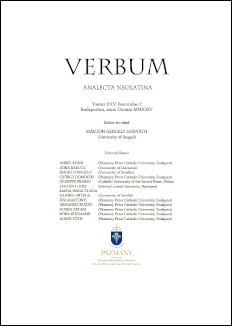Published 31-12-2024
Keywords
- translation,
- economic challenge,
- digital era
How to Cite
Copyright (c) 2025 Grzegorz Markowski

This work is licensed under a Creative Commons Attribution 4.0 International License.
Abstract
Translation has a long history, dating back to antiquity, playing a key role in intellectual mediation and the dissemination of ideas, especially during the Renaissance. Today, it addresses contemporary challenges while facilitating intercultural understanding and preserving linguistic diversity. Economically, it enables the expansion of international markets, improves communication and ensures regulatory compliance, providing competitive advantages. In the digital age, translation connects cultures globally through advanced technologies. The future of translation relies on AI and automated translation, providing real-time translations and cultural adaptation, while raising crucial ethical questions.
References
- Chelin, A. (2016) : Les enjeux de la traduction dans le contexte actuel de mondialisation. http://www.quickprotranslations.com/blog/fr/les-enjeux-de-la-traduction-dans-le-contexte-actuel-de-mondialisation/
- Daoud, Y. (2022) : La Traduction à l’Ere des Outils Technologiques. Translation 9(1) : 696–708.
- ISO copyright office (2017) : Services de traduction — Post-édition d’un texte résultant d’une traduction automatique — Exigences. Norme internationale ISO 18587. https://tinyurl.com/27k8t9md
- Oustinoff, M. (2015) : La traduction. Collection Que sais-je?, Presses Universitaires de France. https://doi.org/10.3917/puf.ousti.2015.01


